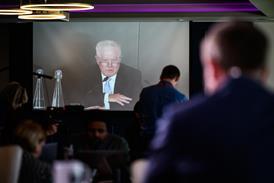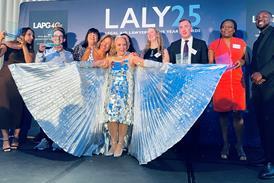The High Court has rejected a solicitor’s plea for his strike-off for failing to carry out sufficient checks on property deals to be overturned. Mr Justice Linden said it was ‘inevitable’ that Charles Ete would be thrown out the profession after he was found to have acted without integrity. He also acted dishonestly in telling insurers he had no outstanding issues.
Ete, who was admitted in 1997, had been the sole equity partner and owner of his own firm in Barking, east London, when he was found to have breached SRA rules during and after two conveyancing transactions.
The transactions were the subject of fraud by the clients of Ete. They pretended to own the properties and then instructed him to transfer monies to third parties.
The Solicitors Disciplinary Tribunal found that Ede had allowed the frauds, worth around £450,000 in total, to happen through serious mishandling of the conveyancing.
The judge said the tribunal’s 59-page ruling was ‘highly detailed, thorough and a model of clarity’, dealing in turn with Ete’s ‘somewhat optimistic’ submissions of no case to answer on any allegation.
Various ‘red flags’ were said to be missed by the solicitor, including a copy of one client’s passport recording that they were male, which was at odds with her appearance in the photo and her female name. When contracts were exchanged with the buyers’ solicitors, the signature of one client differed from the signature on the passport, with an additional ‘L’ appearing in their name.
Ete appealed on the basis that the SDT did not focus enough on his evidence that he did not think certain declarations were needed, and that the sanction was ‘overly harsh’ given that he had been duped by the fraudsters.
The judge said it was plain from the tribunal’s ruling that it did not accept this was a case of a solicitor with limited conveyancing experience doing his conscientious best. The SDT was right to find Ete lacked integrity because the obligation on all solicitors to be vigilant in protecting client money was ‘fundamental to the basic ethical requirements of the profession’.
On dishonesty, the court heard that Ete had submitted a professional indemnity renewal form in which he confirmed he was not aware of any claims or circumstances likely to give rise to claims from the previous six years. Ete argued that because fraud was not covered by the firm’s PII, there was no need to report the matter. The judge said the tribunal had been prepared to accept that he believed that any claim from the buyers would be unsuccessful, but not that he did not believe that he had an obligation to report the situation.
The judge said the tribunal might well have struck Ete off even without dishonesty proven, but with this finding such an outcome was inevitable. The SDT’s order that he pay £64,260 costs was also upheld.





























